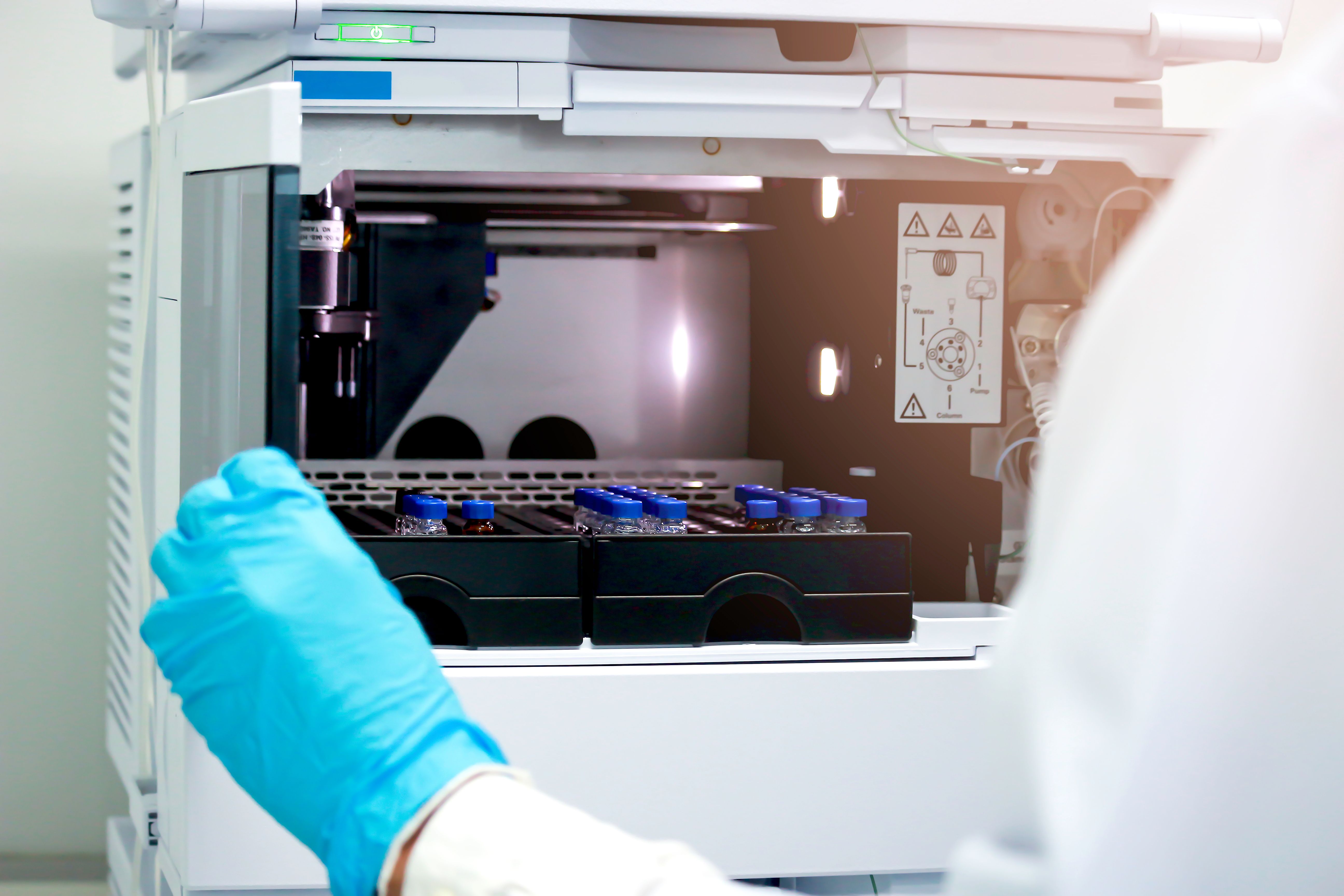HPLC Market Predicted to Reach $7.9 Billion by 2030
A new report from Meticulous Research attributes the growth to the development of antibody-based therapeutics and biosimilars.
New analysis from the market research firm Meticulous Research predicts growth in the high performance liquid chromatography (HPLC) market over the next six years. The HPLC industry and its systems, hardware, and software are expected to reach a combined worldwide value of $7.9 billion by 2030, Meticulous Research reported.
Vials (small bottle) in tray inside injection section of High Performance Liquid Chromatography (HPLC) instrument, chemistry analytical experiment concept | Image Credit: © Stella - stock.adobe.com

The firm associates much of the current market intrigue in HPLC with antibody-based therapeutics and biosimilars for which U.S. Food & Drug Administration (FDA) emergency approvals came fast and furious in the first years of the COVID-19 pandemic. The need to identify and quantify components in complex samples, as typical of liquid chromatographic analysis, is cited as a major reason for not only biopharmaceutical companies, but also hospitals and clinics, to invest in HPLC systems, according to Meticulous Research.
Between the current midpoint of 2023 and the end of the decade, Meticulous Research said, the compound annual growth rate (CAGR) of the HPLC industry is projected to be 5.2%. As mentioned, this covers complete systems as well as components such as both pre-packed and empty columns, and other essentials like reagents and buffers.
HPLC is also gaining traction in the field of food safety, with the separation potential of the method already being used to detect and assess per- and polyfluoroalkyl substances (PFAS) in food packaging and, consequentially, humans via intake of exposed food products.
With North America accounting for just under half (49.1%) of global pharmaceutical sales in 2021, according to the European Federation of Pharmaceutical Industries and Associations (EFPIA), the continent is expected to be the global leader in HPLC demand in the coming years.
Investigating 3D-Printable Stationary Phases in Liquid Chromatography
May 7th 20253D printing technology has potential in chromatography, but a major challenge is developing materials with both high porosity and robust mechanical properties. Recently, scientists compared the separation performances of eight different 3D printable stationary phases.
Characterizing Polyamides Using Reversed-Phase Liquid Chromatography
May 5th 2025Polyamides can be difficult to characterize, despite their use in various aspects of everyday life. Vrije Universiteit Amsterdam researchers hoped to address this using a reversed-phase liquid chromatography (RPLC)-based approach.
New Method Explored for the Detection of CECs in Crops Irrigated with Contaminated Water
April 30th 2025This new study presents a validated QuEChERS–LC-MS/MS method for detecting eight persistent, mobile, and toxic substances in escarole, tomatoes, and tomato leaves irrigated with contaminated water.
University of Tasmania Researchers Explore Haloacetic Acid Determiniation in Water with capLC–MS
April 29th 2025Haloacetic acid detection has become important when analyzing drinking and swimming pool water. University of Tasmania researchers have begun applying capillary liquid chromatography as a means of detecting these substances.

.png&w=3840&q=75)

.png&w=3840&q=75)



.png&w=3840&q=75)



.png&w=3840&q=75)






